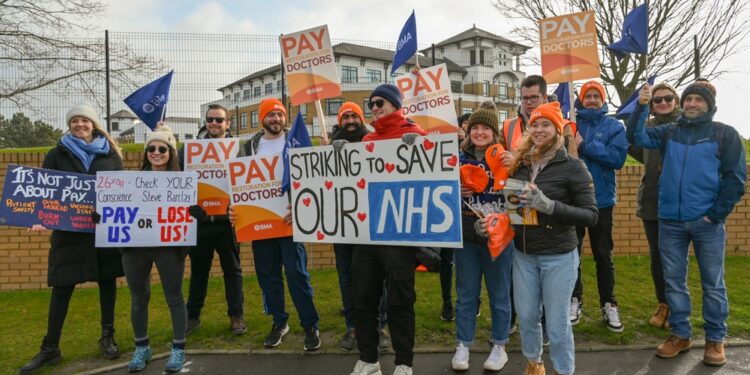Government is to begin negotiations with the British Medical Association (BMA) to end the industrial action by junior doctors, according to secretary of health and social care Wes Streeting.
He made the announcement on Friday after his appointment, while outlining his vision for the NHS.
Streeting said: “I have just spoken over the phone with the BMA junior doctors committee, and I can announce that talks to end their industrial action will begin next week.
“We promised during the campaign that we would begin negotiations as a matter of urgency, and that is what we are doing.”
The BMA is the trade union and professional body for doctors and medical students in the UK. Junior doctors – to be termed resident doctors as of September – have been striking over low salaries. Their most recent strike took place just before the general election from 27 June to 2 July.
The BMA says junior doctors earn as little as £15.53 an hour in England, and even less in Wales and Northern Ireland.
In June, BMA representatives called for junior doctors to receive subsidies to help them pay for food on shift, accommodation, utility bills and parking.
Industrial action since last year has impacted more than 1.4 million hospital appointments according to the NHS.
NHS is broken
Streeting also spoke to the state of the NHS, which he said was “broken”.
He said: “When we said during the election campaign, that the NHS was going through the biggest crisis in its history, we meant it.
“When we said that patients are being failed on a daily basis, it wasn’t political rhetoric, but the daily reality faced by millions.
“Previous governments have not been willing to admit these simple facts. But in order to cure an illness, you must first diagnose it.
“This government will be honest about the challenges facing our country, and serious about tackling them.
“From today, the policy of this department is that the NHS is broken.
“That is the experience of patients who are not receiving the care they deserve, and of the staff working in the NHS who can see that – despite giving their best – this is not good enough.
“When I was diagnosed with kidney cancer, the NHS saved my life.
“Today, I can begin to repay that debt, by saving our NHS.”
He said: “This government has received a mandate from millions of voters for change and reform of the NHS, so it can be there for us when we need it once again.”
But he warned that the road ahead may be a long one.
“It will take time – we never pretended that the NHS could be fixed overnight,” he continued.
“And it will take a team effort. It will be the mission of my department, every member of this government, and the 1.4 million people who work in the NHS, to turn our health service around.
“We have done this before.
“When we were last in office, we worked hand in hand with NHS staff to deliver the shortest waits and highest patient satisfaction in history.
“We did it before, and together, we will do it again.
“That work starts today.”






